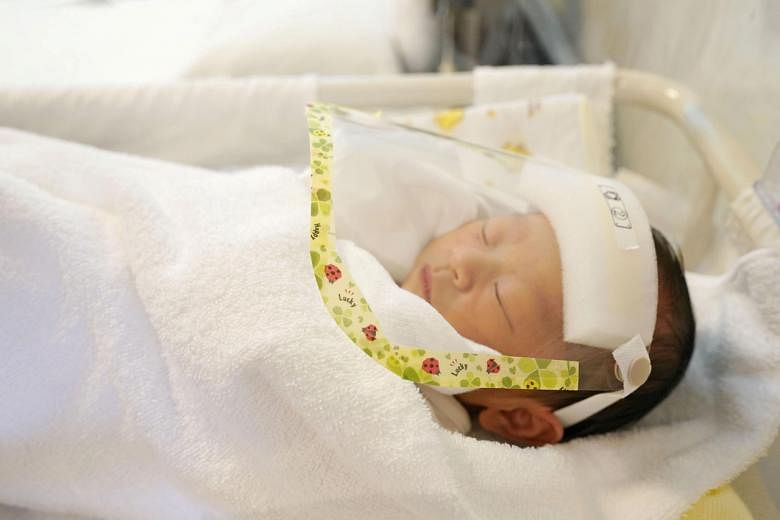TOKYO (YOMIURI SHIMBUN/ASIA NEWS NETWRK) - Legislation has yet to catch up with advances in technology for assisted reproduction, such as sperm and egg donation and surrogacy.
Rules must be developed quickly, with the chief concern being the babies that are to be born.
The Diet has passed special legislation to supplement the Civil Code that clarifies the parent-child relationship of children born through assisted reproductive medicine.
In the case of sperm donation, the husband who agreed to the treatment is the father, and in the case of egg donation, the woman who gave birth is the mother.
Since 1948, sperm donations from third parties have been used to treat couples suffering from infertility due to azoospermia.
So far, more than 10,000 people have been born through anonymous donations.
Likewise, egg donation is used to treat women who cannot conceive due to ovarian dysfunction.
The current Civil Code does not assume that a third party is involved in childbirth.
In the past, there have been court cases in which husbands have claimed that their children are not their own after babies were born through sperm donation.
The enactment of the special law is significant in that it aims to stabilise the legal status of children born through reproductive medicine.
However, issues such as what range of assisted reproductive medicine is ethically permissible and what kinds of regulations are appropriate were not incorporated in the law.
A supplementary provision of the special law stipulates that the government would study such issues within two years and take necessary lawmaking measures.
One key issue is whether couples will be allowed to use surrogacy, in which a couple's fertilised eggs are born from a third person.
In other countries, there have been problematic cases in which people refused to accept babies born with disabilities or surrogate mothers refused to hand over children.
Can surrogate mothers bear the risk of sometimes life-threatening childbirth for the convenience of the people who employed them?
Is it ethical to give birth by proxy to provide a baby to others? Discussing the issue from various aspects cannot be avoided.
Use of the internet to buy and sell sperm between individuals and the utilization of sperm banks, which allow recipients to choose such elements as donors' race and educational background, are also expanding.
There are people who feel that such transactions could lead to eugenics and commercialism.
Some regulations are certainly necessary.
A child's "right to know their origin" is another major point of contention. In recent years, there has been a new movement in which children born through sperm donations seek information about the donors.
It is natural to want to know about one's roots.
There could be fears over unwittingly marrying a blood relative.
Some countries have systems in place to record information on donors and disclose it if the child wishes.
Discussions should be deepened on whether disclosure is the best course.
The special law is only the first step in ensuring proper medical treatment for assisted reproduction.
A host of issues must be contemplated to develop the proper environment.
The Yomiuri Shimbun is a member of The Straits Times media partner Asia News Network, an alliance of 23 news titles.

